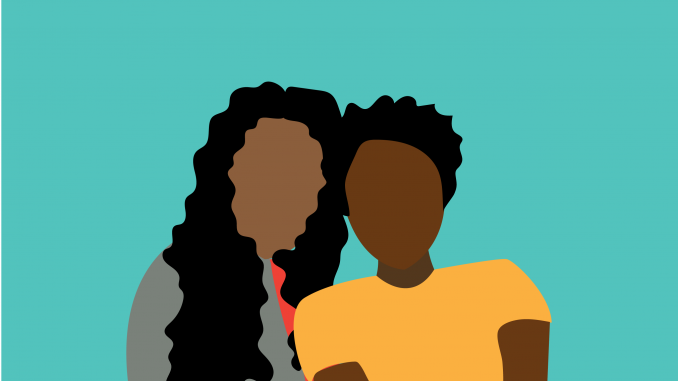
Growing up, Herby Boucard put his Haitian culture “on the back burner,” because he felt Haitian culture did not mesh with American beliefs. But in middle school, he visited Haiti and discovered the country’s beauty, he said.
“When I finally saw, like, the beauty of the country and the culture, it kind of like, it was like ‘oh my god.’” said Boucard, a mechanical engineering major and the president of the National Society of Black Engineers. “It was for a long time, something I always remember and cherish, because I got a better idea. A lot of times when you see, when you think of Haiti, you think of a wasteland.”
Black students find joy in their cultures and communities and feel Black joy has an important role in activism as the Black community pushes to be seen as more than just victims of racism.
For Black people, being happy and enjoying life in a society designed to oppress them is a form of resistance, said Pascal Osei, a freshman political science and legal studies major and the political action chair for the Black Student Union.
Black joy has become part of the ongoing international conversation about race, with Black people publishing books documenting Black joy and hosting events to bring people together, Vogue reported.
Appreciating Black culture can also help push back against negative images of Black people and Black culture, Osei added.
“I think it’s important for Black youth to find whatever things they’re most interested in and just capitalize off that and try to live as regular a childhood as possible,” Osei said.
Finding joy is an important way to balance out overexposure to racism and maintain a positive self-image, Boucard said.
Overexposure to race-related current events on social media, especially police brutality, can traumatize those who identify as part of the group suffering, according to a 2020 study conducted by the University of Maryland Medical System.
Haiti often only makes the news when something bad happens, like an earthquake or the assassination of President Jovenel Moise, and everything else about the country is ignored by the mainstream media, Boucard added.
“But there are so many things there, that you know, that you will not see anywhere else,” he added. “I’ve seen the bluest water and whitest sand at sandy beaches while I was there.”
After his visit to Haiti, Boucard took time to understand his parents’ more traditional point of view instead of disregarding it, he said.
As the Vice President of BSU, Kaila Williams tries to help Black students connect with one another and participate in club events, she said.
BSU is hosting community service projects and events to create a more welcoming environment for Black students, said Williams, a senior biology major.
“The community aspect of it, I think, that’s the best part of the culture, that like, we feel the sense of community when you’re around,” Williams said. “You can go anywhere and just kind of assimilate…it’s an unsaid type of thing that we’re all in this together.”
The National Society of Black Engineers builds community through events, like study nights and helping each other with non-club related things.
The former club vice president, Geoffrey Milford, gave Boucard his undivided attention and helped him restructure his resume, despite not being personally close with him, he said.
“He actually took about two or three hours out of his day to specifically work with me, work on that with me,” Boucard added.
An important part of being in the Black community is knowing Black history and appreciating the diversity within the community, Osei said.
There are diaspora communities throughout North and South America, the Caribbean and Asia. Each part of the diaspora has its own culture and subcultures, Osei added.
Williams and Osei are encouraging Black students to take more Africology courses so they can learn about their history and get an African perspective on current events, Williams said.
Learning about Black history is important since many schools don’t teach Black history accurately, if at all, Insider reported.
Other students of color and white students should consider taking Africology courses too, Williams said.
“It’s best for all of us to know about that in terms to just have better interactions with each other and just know more, in general,” Williams said.


Be the first to comment